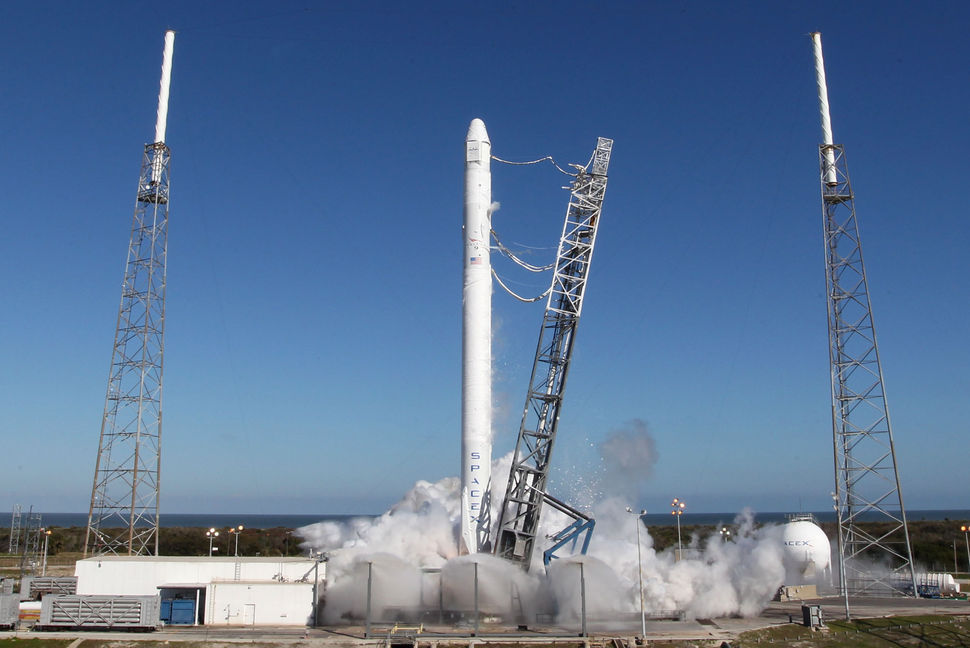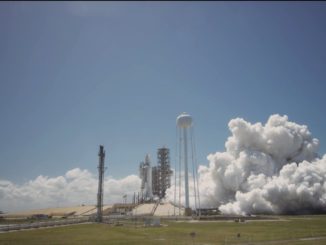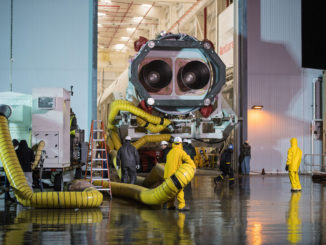
Blaming a technical glitch encountered during a preflight test, officials said Thursday the launch of SpaceX’s next Dragon cargo capsule to the International Space Station has been delayed to early January.
Liftoff of SpaceX’s Falcon 9 rocket is now expected no earlier than Jan. 6 at 6:18 a.m. EST (1118 GMT), officials said.
SpaceX said engineers ran into unspecified problems during a “static fire” test conducted Tuesday. During static fire tests, the SpaceX launch team loads the rocket with kerosene and liquid oxygen propellants, runs through countdown procedures, then lights the booster’s nine Merlin 1D engines for a few seconds while the Falcon 9 is held down on the launch pad at Cape Canaveral.
“While the recent static fire test accomplished nearly all of our goals, the test did not run the full duration,” said John Taylor, a SpaceX spokesperson. “The data suggests we could push forward without a second attempt, but out of an abundance of caution, we are opting to execute a second static fire test prior to launch.”
SpaceX and NASA gave no details on the technical issues that cut short the static fire test, but officials said thermal contraints on the space station prohibit the Dragon spaceship from berthing with the complex between Dec. 28 and Jan. 7.
“Beta angles are the angles between the space station orbital plane and the sun, resulting in the station being in almost constant sunlight for a 10 day period,” NASA said in a statement. “During this time, there are thermal and operational constraints that prohibit Dragon from berthing to the station. This high beta period runs from Dec. 28 through Jan. 7.”
“Given the extra time needed for data review and testing, coupled with the limited launch date availability due to the holidays and other restrictions, our earliest launch opportunity is now Jan. 6, with Jan. 7 as a backup,” Taylor said.
If the Falcon 9 rocket takes off Jan. 6, the Dragon spaceship would rendezvous with the space station Jan. 8.
“Both Falcon 9 and Dragon remain in good health, and our teams are looking forward to launch just after the New Year,” Taylor said.
“The launch postponement has no impact on the station’s crew, its complement of food, fuel and supplies and will not impact the science being delivered to the crew once Dragon arrives at the station,” NASA said.
Follow Stephen Clark on Twitter: @StephenClark1.



